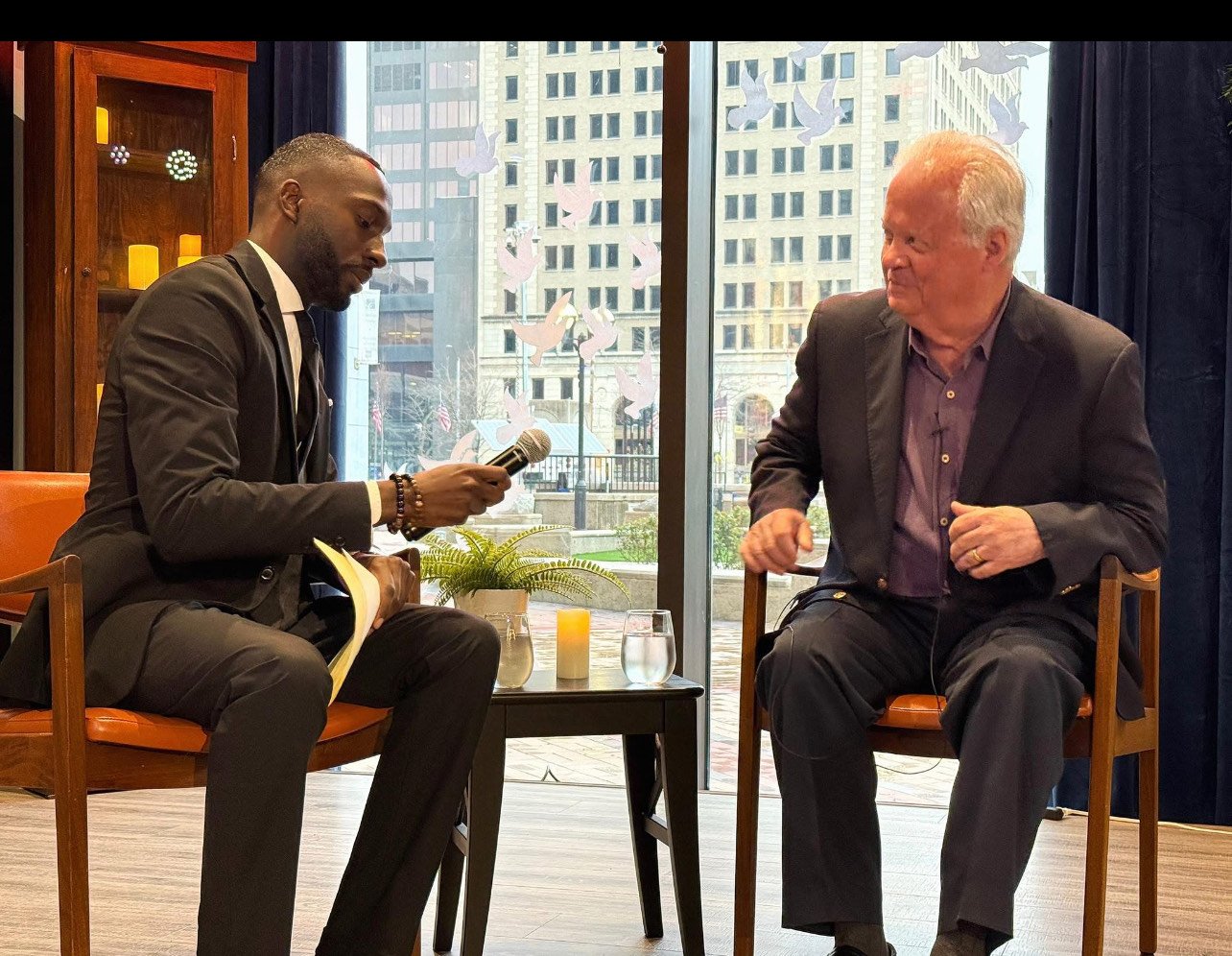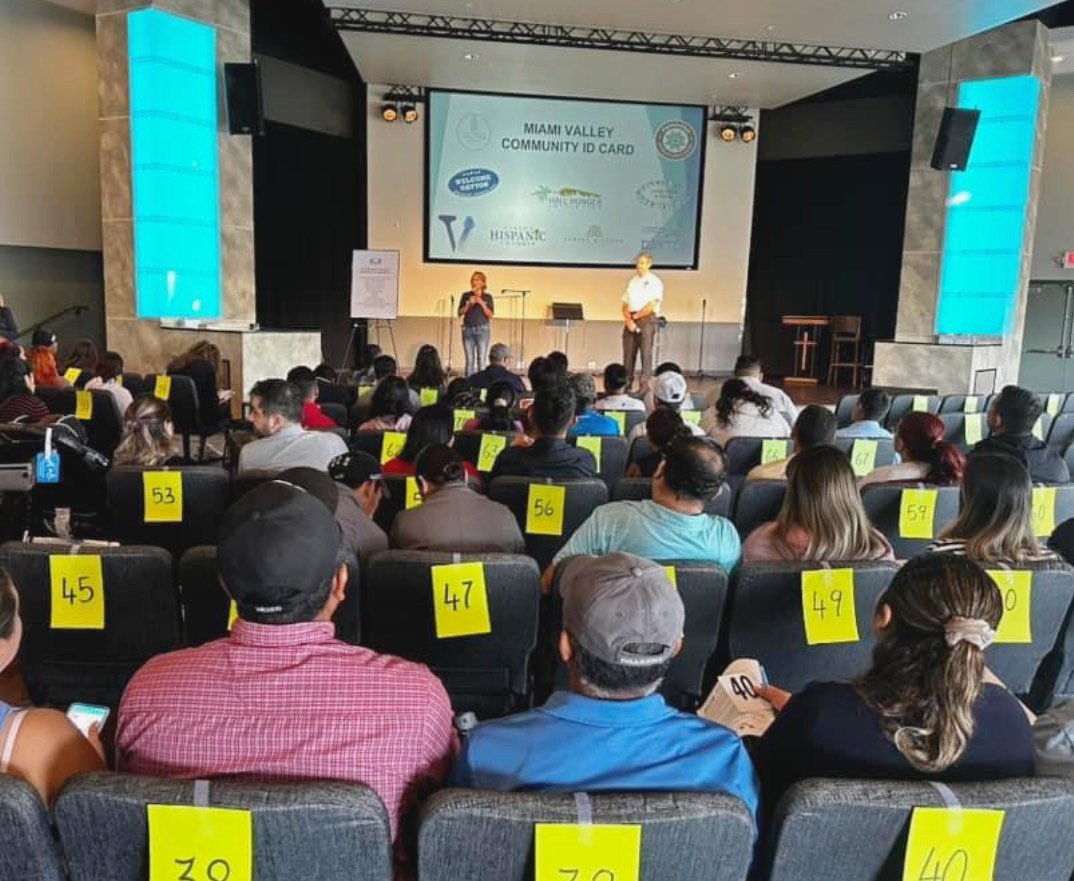Our Blog

Fast For Peace and Food Justice Inspires Hundreds
The one day Fast for Peace and Food Justice brought together 200 people to the Dayton International Peace Museum for inspiration, education and community unity.

Funding Cuts Hurting World Food Program USA ‘s Ability to Deal with Global Hunger Crisis
World Food Program USA shares information about international hunger crisis.

Tony Hall on Fasting Interviewed by Kristina Onder
Tony Hall talks about fasting and invites the community to join

Development Consultant for Hall Hunger Initiative Join Our Team!
Development consultant position available with HHI!

Growing Number of People Have Community IDs
Miami Valley Community ID eliminates barriers.

Tony Hall On Peace in Ukraine
What are the keys to a just and sustainable peace in Ukraine?

Tony Hall Shares His Stories with the Naples Press Club
From the Peace Corp in Thailand to UN Ambassador, Tony talks about his life’s work.

Tony Hall Remembers Jimmy Carter by Kristina Onder
Tony remembers President Carter as highly intelligent and moral

Ambassador Hall Travels to Ukraine to Support a National Day of Prayer
The people of Ukraine are suffering from the toll of war and look for peace.

Tariffs Threaten Farmers and Food Prices
Increasing tariffs has been proven to hurt American farmers.

Learn More About Springfield and Immigration
After the presidential debate, conversations about immigrants in the U.S. have flooded headlines, especially Haitian immigrants in Springfield Ohio. Gov. Dewine has stepped up and totally refuted the claims while adding that they are here legally.

Ideas & Voices: A First-Hand Look at the War in Ukraine
I was honored recently to be invited by Ukrainian President Volodymyr Zelenskyy to represent the United States at the National Prayer Breakfast in Kyiv. I joined leaders from around the world to show support for the Ukrainian people.
Ukraine was invaded by Russia in February of 2022, and the ensuing war has been brutal. More than 500,000 people have died thus far, and 500 more people die every single day. It’s also had a huge impact on hunger in America and around the world.

Ambassador Hall Visits Ukraine
At age 82, one would think that Tony Hall would be content to rest on his laurels. The former Congressman from Dayton and Ambassador to the United Nations certainly has plenty of laurels on which to rest. Nominated for a Nobel Peace Prize three times and a recipient of the Romanian Medal of Honor, Hall also received the 1992 Silver World Food Day Medal from the Food and Agriculture Organization of the United Nations and the UNICEF 1995 Children's Legislative Advocate Award.

Buying Local Food Supports Diversity
One advantage of local food is that it supports diversity in its various forms. Diversity is an important part of a food system. From the background of farmers (age, race, gender), to the mix of crops in the ground that help heal the soil, diversity allows for a much more vibrant food system. When we talk about nutrition, it is not only what feeds the body but also what feeds the soul.

Local Food is Healthier!
One of the big reasons to “Eat Fresh, Buy Local!” is because local food is generally more nutritious! Produce begins to lose nutrients as soon as it’s harvested. For example, spinach loses more than half its nutrients in the first few days after being picked.

For a thriving, resilient Miami Valley, support local growers
America has always been a farming nation — even today, 1 out of 7 jobs in Ohio are connected to agriculture. However, there has been a dangerous change in the last few years, and many people aren’t aware.
America is now importing more food than we export. Even more troubling is our increasing dependence on other nations for fruits and vegetables — the kind of healthy food that is so vital is supporting children growing up strong and helping adults avoid illness. We are now importing twice as much fresh produce as we were just a dozen years ago.
We’ve become dependent on other countries for some of our most important health food.

‘Children are dying as we speak’: End the famine in Gaza
The situation in Gaza is close to my heart. In 2006, Secretary of State Condoleezza Rice and members of Congress asked me to work in Palestine and Israel to try to heal some of the divisions. I traveled to the Holy Land 11 times in 22 months, working in Hebron, Ramallah, Gaza, and Jerusalem, meeting with religious leaders of the Christian, Muslim, and Jewish religions. In the Middle East, it’s impossible to achieve peace without the involvement of top religious leaders. Too many elected officials and diplomats overlook this reality.

Women Who Inspire - Part 3
For this week's newsletter, I want to highlight the voice of one female leader, Lupe Gonzalo, and her work with the Coalition of Immokalee Workers (CIW). Lupe is a tireless and inspirational food system activist who travels the country speaking and training new farmworkers in the field. Early on in my advocacy career, CIW inspired me to advocate for a more just and sustainable food system. Although CIW’s work largely focuses on labor, it speaks to the complex intersectionality of social, environmental, and economic justice in our food system today.

Women Who Inspire - Part 2
As an undergraduate student studying Sustainability, I have the privilege of taking a diverse set of classes. One such course discussed food insecurity, how it has historically impacted the Dayton area, and how food insecurity manifested itself in current turmoil. We received a guest lecture from Access to Excess founder Jen Burns, who discussed her creative solution to attacking the roots of food insecurity and food waste. In short, Jen collects unsold food from local farmers and grocery stores and offers collected items for free. She holds produce stands or soup stands throughout the Greater Dayton Area. In other words, Jen travels to you, bridging the gap between access to excess food items. Her partnerships with local organizations help Jen reflect a vision of food security for all.

Women Who Inspire - Part 1
As a Puerto Rican woman and farmer, I have a passion for food sovereignty and Puerto Rico’s independence. It may be naive, but I believe a food sovereign Puerto Rico can be an independent Puerto Rico. In honor of Women’s History Month, I want to highlight a woman who is doing the work to strengthen the local food system on the island. Her name is Crystal Díaz, and she created an app that connects local farmers to restaurants and other consumers.

